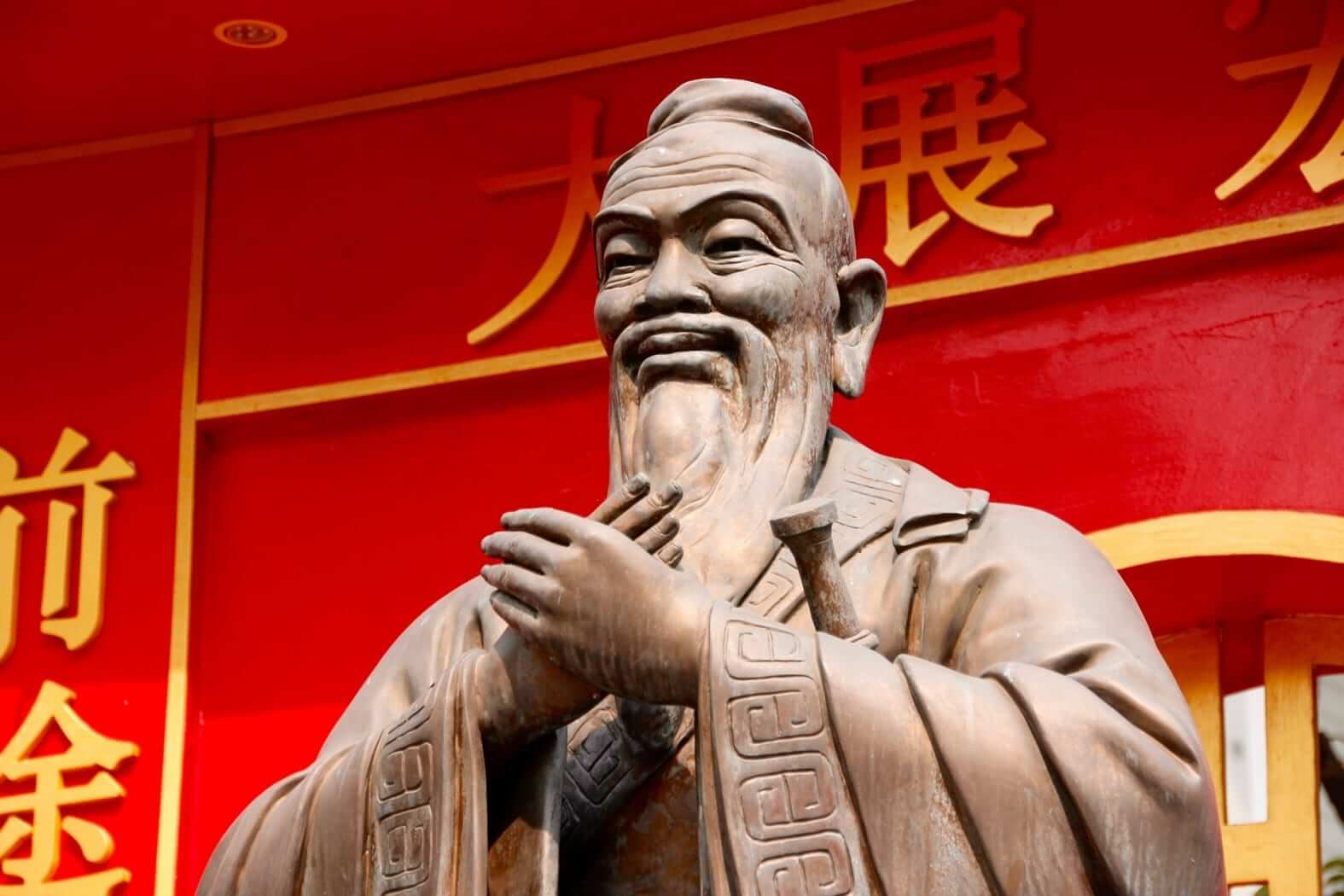
Confucianism, one of the oldest philosophical and religious traditions in the world, has left an indelible mark on East Asian cultures and societies. With its origins in ancient China, this ethical and moral system has shaped the way people live, govern, and perceive the world for over 2,500 years. Named after its founder, Confucius, this philosophy emphasizes proper conduct, social harmony, and the cultivation of virtuous qualities.
Confucianism has influenced not only China but also neighboring countries such as Japan, Korea, and Vietnam. Its teachings have permeated various aspects of life, including politics, education, family values, and personal relationships. In this article, we will explore 16 intriguing facts about Confucianism, shedding light on its key principles, rituals, and impact on societies throughout history. So, let’s delve into the rich heritage of Confucianism and discover the wisdom it imparts.
Key Takeaways:
- Confucianism, founded by Confucius, emphasizes kindness, education, and family values. It has influenced art, governance, and cultures in East Asia for over 2,500 years.
- Confucianism promotes harmony, self-improvement, and balance in society. It has survived challenges and continues to shape modern East Asian societies and their rich heritage.
Confucianism has a rich history dating back over 2,500 years.
With its origins in ancient China, Confucianism is one of the oldest religious and philosophical systems in the world. Its teachings and principles have had a profound impact on Chinese culture and society.
Confucianism is named after its founder, Confucius.
Confucius, also known as Kong Zi, was a Chinese philosopher and teacher who developed the foundation of Confucianism. His teachings emphasized moral values, social harmony, and the importance of education.
Confucius believed in the concept of “Ren,” which means benevolence or humaneness.
According to Confucius, practicing Ren involves treating others with kindness, respect, and empathy. It promotes the idea of cultivating moral virtues and harmonious relationships within society.
The Five Great Relationships are a core principle of Confucianism.
These relationships are based on different roles, such as ruler and subject, father and son, husband and wife, elder brother and younger brother, and friend and friend. Confucianism emphasizes the importance of fulfilling these roles with righteousness and integrity.
Confucianism emphasizes the value of education.
Education is seen as a means to cultivate individuals’ moral character and promote social harmony. Confucius believed that education could transform society and bring about positive change.
The Analects is a collection of Confucius’ teachings and ideas.
This influential text contains a compilation of conversations, anecdotes, and aphorisms attributed to Confucius. It serves as a primary source for understanding Confucian philosophy.
Xiao, meaning filial piety, is highly valued in Confucianism.
Confucianism places great importance on the virtue of filial piety, which refers to the respect, obedience, and care shown towards parents and elders. It is considered a cornerstone of social harmony.
Confucianism promotes the concept of “Li,” which encompasses rituals, etiquette, and proper conduct.
Li guides individuals on how to interact with others, emphasizing respect and appropriate behavior in various social situations. It helps maintain order and harmony within society.
The concept of Yin and Yang is incorporated into Confucianism.
Yin and Yang represent contrasting and complementary forces in the universe. Confucianism acknowledges the need for balance between these opposing elements for a harmonious existence.
Confucianism influenced the political system of Imperial China.
During the Han dynasty, Confucianism became the dominant belief system and had a significant impact on governance. Confucian principles were integrated into the administration and influenced the emperor’s decisions.
Confucianism survived multiple dynastic changes and political ideologies.
Despite facing challenges and suppression throughout history, Confucianism has managed to endure and maintain its influence on Chinese society for centuries.
Confucianism plays a crucial role in East Asian cultures.
Beyond China, Confucianism has influenced the cultures of countries like Japan, Korea, and Vietnam. Its principles continue to shape social norms, ethical values, and family structures in these nations.
Confucianism emphasizes social harmony and order.
Confucius believed that a stable society could be achieved through proper governance, moral conduct, and the practice of rituals. The goal is to create a harmonious balance between individuals, families, and the state.
Confucianism values the pursuit of knowledge and self-improvement.
The religion encourages individuals to actively seek knowledge, cultivate virtues, and strive for personal growth. Continuous self-reflection and learning are essential aspects of Confucian practice.
Confucianism has evolved over time.
Throughout history, Confucianism has adapted to changing social and cultural contexts while retaining its core values. It continues to be a dynamic and adaptable belief system.
Confucianism has had a profound impact on art, literature, and architecture.
Confucian ideals have influenced various forms of artistic expression, from calligraphy and painting to traditional music and architecture. These art forms often depict Confucian values and serve as a reflection of the culture.
Conclusion
Confucianism is a rich and influential philosophy that has left an indelible mark on East Asian cultures. With its emphasis on ethical conduct, social harmony, and the cultivation of character, Confucianism offers valuable insights into how individuals can lead meaningful and fulfilling lives.By understanding the key principles and teachings of Confucianism, we can gain a deeper appreciation for the importance of filial piety, respect for authority, and the pursuit of knowledge. The teachings of Confucius have not only shaped social norms but also influenced political institutions and educational systems.In a world that is increasingly interconnected, the values and principles of Confucianism can serve as a guide for fostering mutual respect, understanding, and cooperation among different cultures and nations. Confucianism emphasizes the importance of relationships, both within the family and in society at large, and encourages individuals to strive for moral excellence and to contribute positively to their communities.Overall, the study of Confucianism allows us to explore fundamental questions about the nature of morality, the purpose of life, and the role of individuals in society. It provides us with timeless wisdom and practical guidance on how to navigate the complexities of the modern world while remaining grounded in principles that promote goodness, harmony, and social cohesion.
FAQs
1. What is the historical background of Confucianism?
Confucianism originated in ancient China during the Zhou Dynasty around the 5th century BCE. It was founded by Confucius, a renowned philosopher, educator, and political figure.
2. What are the core teachings of Confucianism?
The core teachings of Confucianism revolve around the principles of filial piety, righteousness, loyalty, and benevolence. It emphasizes the cultivation of moral character and the importance of maintaining harmonious relationships.
3. How does Confucianism influence East Asian cultures today?
Confucianism continues to influence various aspects of East Asian societies, including family dynamics, education systems, and social hierarchies. It has also shaped political governance and the ethical foundation of many East Asian countries.
4. Can Confucianism be practiced by individuals of different religious backgrounds?
Yes, Confucianism is primarily a philosophical and ethical system rather than a religious one. It can be practiced by individuals of different religious affiliations, as its teachings offer guidance on moral conduct and social relationships.
5. How does Confucianism promote social harmony?
Confucianism promotes social harmony by advocating for the establishment of virtuous and just relationships among individuals, emphasizing the importance of respect, empathy, and harmonious coexistence.
6. What is the role of education in Confucianism?
In Confucianism, education is highly valued as a means of self-cultivation and moral development. It emphasizes the lifelong pursuit of knowledge and the cultivation of virtues such as wisdom, integrity, and humility.
7. Are there any rituals or practices associated with Confucianism?
Confucianism does not require specific rituals or practices. However, ancestor worship, the performance of rites, and the observance of festivals are commonly practiced in many East Asian cultures influenced by Confucianism.
8. How does Confucianism view the role of government?
Confucianism emphasizes the importance of virtuous leadership and ethical governance. It advocates for rulers to act as benevolent and ethical leaders, promoting the welfare and well-being of their subjects.
9. What are some contemporary criticisms of Confucianism?
Contemporary criticisms of Confucianism focus on its hierarchical nature, patriarchal tendencies, and potential to stifle individual creativity and autonomy. Critics argue that it may perpetuate social inequalities and limit personal freedom.
10. Can the principles of Confucianism be applied in the modern world?
Yes, many principles of Confucianism are still relevant and applicable in the modern world. Its emphasis on ethical conduct, personal responsibility, and harmonious relationships can guide individuals in navigating complex social and ethical dilemmas.
Was this page helpful?
Our commitment to delivering trustworthy and engaging content is at the heart of what we do. Each fact on our site is contributed by real users like you, bringing a wealth of diverse insights and information. To ensure the highest standards of accuracy and reliability, our dedicated editors meticulously review each submission. This process guarantees that the facts we share are not only fascinating but also credible. Trust in our commitment to quality and authenticity as you explore and learn with us.


